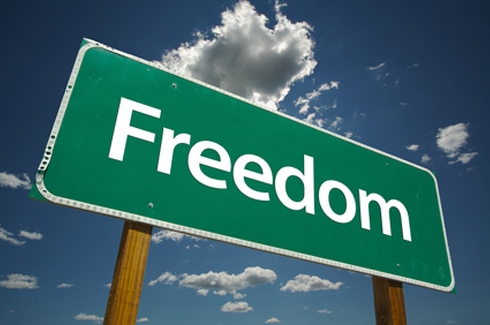Something More
What Else Can We Do for the Cause of Freedom?
by Missy Beattie
Sunday, sister Laura and I went to a festival a block from my apartment. We walked past the vendor artists, their booths of pottery, jewelry, paintings, and metalwork, and opened our portable chairs near a stage where musicians performed. An event organizer took  the mic and said someone mentioned the strangeness of having a festival when the country’s facing so many problems. She’d responded that art makes the world go ‘round.
the mic and said someone mentioned the strangeness of having a festival when the country’s facing so many problems. She’d responded that art makes the world go ‘round.
I sat there, thinking about Herman Wallace and Alfred Woodfox. Actually, I’ve thought of little else for over a week.
Wallace spent 41 years in solitary confinement at Louisiana’s Angola prison. And so has Woodfox. For Wallace, the torture is over. Diagnosed in June with advanced liver cancer, he was freed by a federal judge on Tuesday, October 1st and died three days later at the home of a friend. The judge had ruled that Wallace’s indictment in the 1972 killing of a prison guard was unconstitutional. Woodfox, his co-defendant, was allowed to say goodbye but then returned to solitary. When the guard was murdered, there was no physical evidence placing either man at the crime scene and both maintained their innocence, but their membership in the Black Panther Party, organizing for prison reform, pitted them against the system. They believed they were targeted and punished for their activism.
Near death, Wallace said, “I am free, I am free,†No one told him that he’d been re-indicted on Thursday.
“I am free. I am free.â€
I think of these words and weep. At the poignancy. For what they say about our justice system, our inhumanity.
Moving through the rooms of my condo, I stare at a privileged life and realize the bullshit edict of freedom for all and that we’re created equal. My little-girl life was such a fairytale that when asked what I wanted to be someday, I said, “The ballerina in the music box.†My parents didn’t say If you go to college but instead asked where. They natured and then nurtured, providing advantages along with love and encouragement.
Images of Wallace are juxtaposed in my mind, one of him before his diagnosis and another, on that stretcher, leaving prison, wasted by disease. The two shift back and forth. I can’t forget him. I don’t want to forget him. Nor can I shunt Woodfox to some lower-level awareness the same way he’s isolated at Angola.
When I walked with Laura past those booths of art on Sunday, Wallace’s presence was everywhere. I told my sister that at one time, I’d have looked at each display, perhaps selecting something in support of a sculptor, designer, or painter.
When Wallace was in solitary, an artist provided a particular lifeline to him. Jackie Sumell corresponded, asking Wallace to describe his dream house. Her interpretation of this was exhibited in galleries in a dozen countries. Wallace said the project “helps me to maintain what little sanity I have left, to maintain my humanity and dignity.†Indeed, Sumell’s relationship with and commitment to Wallace helped make his world go ‘round.
“I am free. I am free.†Yes, Wallace is free, at last. Woodfox isn’t. So many aren’t, enduring unfathomable cruelty and wretchedness, whether in prison here, in solitary, or detained at Guantanamo.
I reread an essay I’ve referenced before about involvement and empathy. It contains this quote:
Being attentive to the needs of others might not be
the point of life, but it is the work of life. It can
be messy, and painful, and almost impossibly difficult.
But it is not something we give. It is what we get in exchange for having to die.
I want to know what I can do, what I can do to be attentive to the needs of others. There has to be more, something better than writing an article about Herman Wallace and Albert Woodfox, something more than a donation (although this is a start) to Prisoner Hunger Strike Solidarity or the Innocence Project (now handling nearly 300 active cases). Something more than joining Close Guantanamo. Something more effective than a petition — like the one I recently signed for the compassionate release of Lynne Stewart. All are important, necessary, but we must do more. Something more. And I really don’t know what.
Missy Beattie has written for National Public Radio and Nashville Life Magazine, and was an instructor of memoirs writing at Johns Hopkins’ Osher Lifelong Learning Institute in Baltimore. She is a Contributing Author for New Clear Vision, and can be reached at  missybeat(at)gmail(dot)com.

Missy, thanks for being the voice of truth- in a sense, a spokesperson for many of us who very much feel.the way you do. About Wallace, Stewart, Guantanamo, racial and social inequality, the horrors of our military machine. Keep writing, working for change in N.C. and beyond. I for one, appreciate it and value your work, always.
1